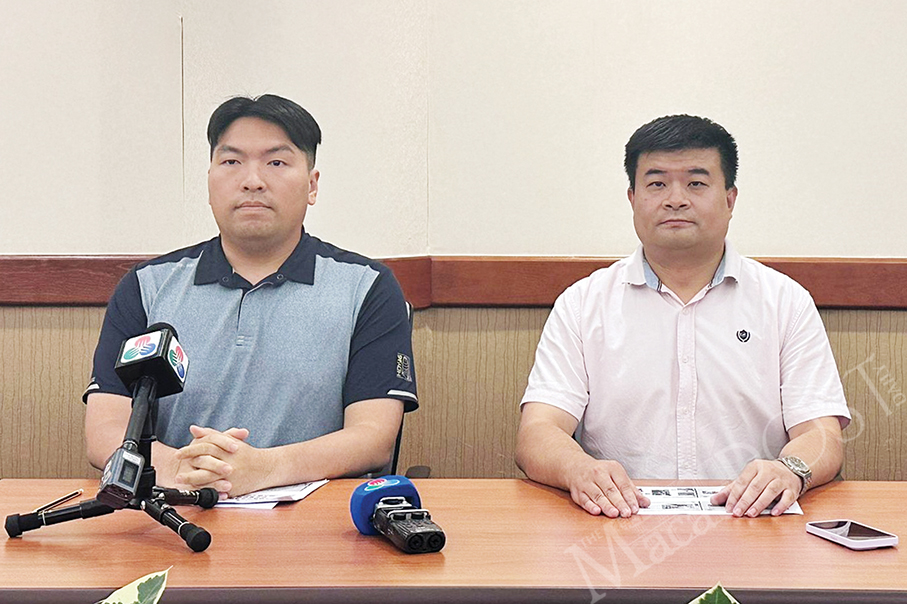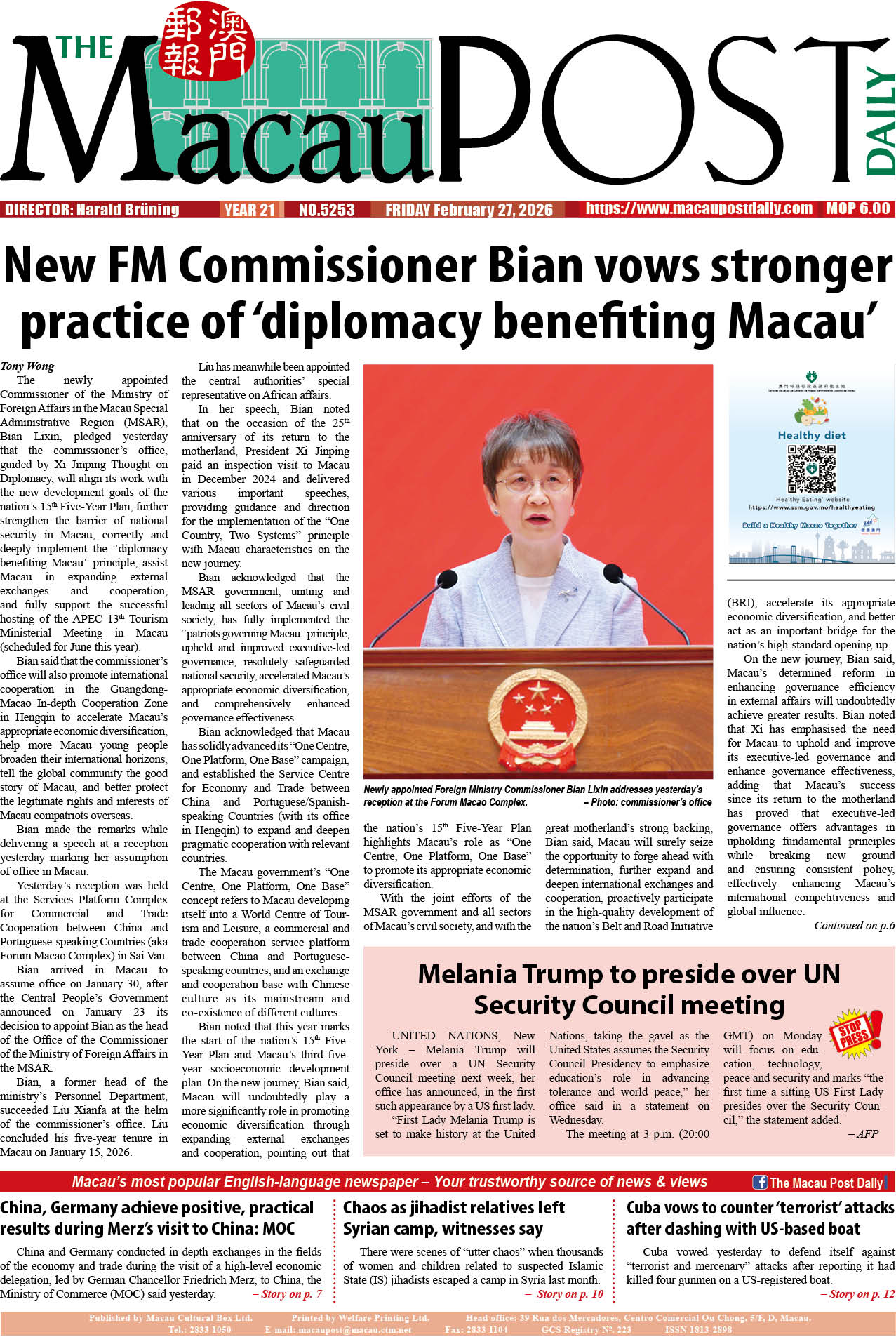The Legislative Assembly (AL) yesterday passed the outline of a government-initiated bill regulating the operation and supervision of the city’s public enterprises, which aims to ensure that their decision-making process will always be supervised by the government – which holds some or all of their shares – and also to assure the rational use of the public coffers.
Secretary for Administration and Justice André Cheong Weng Chon introduced the outline of the bill during a plenary session in the legislature’s hemicycle yesterday.
The bill will later be passed to a standing committee of the legislature for an article-by-article debate and review, after which it will be resubmitted for its final debate and vote.
Addressing yesterday’s plenary session, Cheong pointed out that Macau currently does not have a specific legal system regulating the operation of the city’s public enterprises. In addition, neither is there a specifically designated public entity tasked with overseeing their operation, Cheong noted.
Public enterprises, also known as publicly-funded companies, refer to firms in which the Macau Special Administrative Region (MSAR) government or any of its entities hold shares.
Cheong noted that therefore the operation of the city’s public enterprises is currently only regulated by the Commercial Code, which applies to all types of companies in Macau.
Cheong noted that the government carried out a two-month public consultation late last year on the drafting of the bill. Cheong said that after studying the opinions gathered during the public consultation, the government concluded that various segments of Macau’s civil society have reached a general consensus on the importance of setting up a legal system regulating the city’s public enterprises.
The bill proposes that public enterprises will comprise three types, namely 1) those wholly owned by the government; 2) companies where the government holds over 50 percent but less than 100 percent of the shares; and 3) companies where the government holds less than 50 percent of the shares.
The bill also defines “subsidiary” as a company controlled by a public enterprise.
The bill proposes that public enterprises will be overseen by a public entity, which the bill does not name. A number of lawmakers asked during yesterday’s plenary session which public entity will oversee public enterprises.
Sónia Chan Hoi Fan, who heads the Macau Special Administrative Region Public Assets Supervision and Planning Office (GPSAP), replied that the government has still not decided whether her office or another existing public entity would be tasked with overseeing the operation of the city’s public enterprises after the new law takes effect.
Some lawmakers also questioned whether the operation of subsidiaries run under public enterprises will be regulated and overseen by the government. Chan replied that such subsidiaries will not be totally unregulated, but their operation will still be regulated by their respective parent companies, i.e., public enterprises which will be required to regularly report their operations to the respective public entity overseeing public enterprises.
Chan emphasised that the purpose of the bill is to allow the government to manage public capital while allowing the respective public enterprises to manage their own operations, and that the government “is not meant to manage everything” in the public enterprises.
The GPSAP was established as a government project team on December 20, 2019 when Chan was appointed its director. Chan was the policy secretary for administration and justice in the previous government, which ended on December 19, 2019.
The office is tasked with studying the modus operandi of the city’s public enterprises and use of public funds and submitting suggestions to the chief executive on possible improvements to their operation and use. The office is also tasked with assisting the government in formulating measures to promote the sound operation of public enterprises and public funds.
The office has an initial duration of three years, which can be extended and is directly overseen by the chief executive and is headed by a director with the assistance of two deputy directors.
According to the GPSAP website, there are currently 23 publicly-funded companies in Macau. In 16 of the companies the government holds over 50 percent of the shares.
Secretary for Administration and Justice André Cheong Weng Chon (right) speaks during yesterday’s plenary session in the legislature’s hemicycle, as Macau Special Administrative Region Public Assets Supervision and Planning Office Director Sónia Chan Hoi San looks on. Photo: Ginnie Liang








